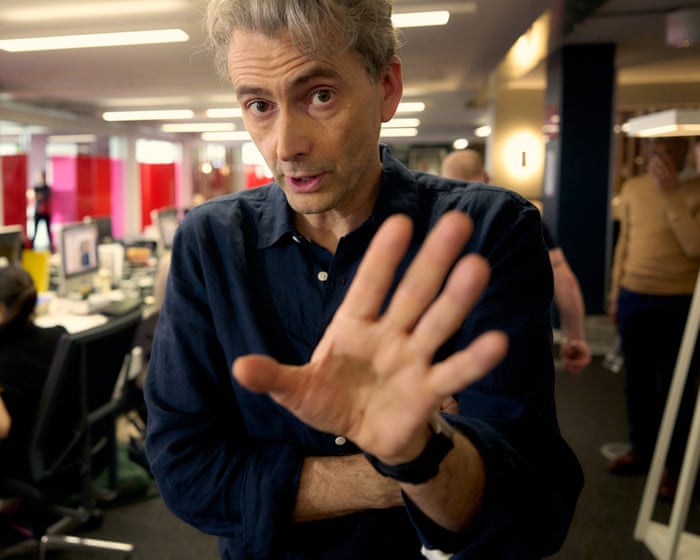Britain is sending Royal Air Force specialists to assist Belgium in tackling drone threats to its airports, following disruptive sightings last week that some politicians have attributed to Russia.
Sir Richard Knighton, the UK’s head of the armed forces, stated that the British military would provide personnel and equipment to support Belgium, though he noted that the origin of last week’s drones remains unknown. This decision came in response to a formal request for help from Belgium. Flights at Brussels and Liège airports were disrupted last Thursday due to unidentified drone sightings, which were also reported near military bases and nuclear facilities across the country.
While Russia is considered the most likely suspect in a series of similar incidents across northern Europe this autumn, Knighton emphasized that the UK is “very happy” to support its NATO ally, regardless of who is behind the drone flights.
Germany announced last week that it had sent specialized assistance, and Belgian authorities confirmed that France has also offered support. The UK’s contribution is expected to come from the RAF’s dedicated counter-drone unit.
Last week, German Defense Minister Boris Pistorius suggested that the drone incursions may be linked to disputes over frozen Russian assets held by Belgium. EU and UK officials have been discussing how to use these assets, primarily held in Belgium, to secure a €140 billion loan for Ukraine.
Knighton made these remarks during his first television interviews as chief of defence staff, having taken over from Admiral Sir Tony Radakin in September. A former head of the air force, he recently led military tributes to fallen soldiers at the Cenotaph in London.
In a BBC interview, Knighton described Russia as “the most pressing threat right now” and stressed the need for the UK to bolster its defenses against hybrid warfare, including cyber attacks, space threats, sabotage, and assassination plots on British soil.
Speaking to Sky News, Knighton acknowledged that the UK armed forces have been “hollowed out” after three decades of budget cuts since the Cold War. He admitted gaps in weapons stockpiles and personnel shortages when asked to elaborate.
UK defence spending is projected to rise from £62.2 billion this year to £71 billion by 2027-28, as part of a plan to increase the military budget to 2.6% of GDP. However, funding constraints persist due to past budget limitations, internal overspending, and a focus on new equipment rather than operational costs.
Knighton expressed confidence that the armed forces are now a safe environment for women, citing reforms implemented after the 2021 suicide of 19-year-old Gunner Jaysley Beck. She took her own life after being sexually assaulted by a senior colleague and harassed by another manager.
In early November, Beck’s mother, Leighann McCready, urged women not to join the army, claiming they are not adequately protected in a male-dominated culture. “They protect themselves and not the soldiers,” she said.
Knighton described it as “a horrible case” and understood why Beck’s mother felt that way. “What happened to Jaysley was entirely unacceptable. It was criminal. She was let down,” he said. He outlined changes made since then, including the creation of an independent defence serious crimes unit and a victim and witness care unit. Victims now have the option to have cases of rape and serious sexual assault handled in either military or civilian courts.
Frequently Asked Questions
Of course Here is a list of helpful and clear FAQs about Britain deploying RAF experts to assist Belgium with disruptive drone activities
BeginnerLevel Questions
1 What is the basic news here
Britain is sending experts from its Royal Air Force to Belgium to help them manage and stop drones that are causing problems
2 What kind of disruptive drone activities are they tackling
This typically refers to drones flying where they shouldnt like near airports over prisons or in crowded public spaces
3 Why is Britain helping Belgium with this
Because drone threats are a shared security challenge in Europe By helping an ally Britain contributes to wider regional safety and gains valuable experience that also helps protect the UK
4 Who exactly are the RAF experts
They are specialists from the RAF who are trained in detecting tracking and safely countering unauthorized drones using advanced technology
5 Is this a common thing for countries to do
Yes its becoming more common Countries often share expertise and resources on security issues especially with emerging technologies like drones that dont respect national borders
Advanced Detailed Questions
6 What specific technologies or methods might these experts use
They likely use a range of tools including radio frequency jammers to break the drones connection GPS spoofers to take control of it and detection systems like radar and electrooptical sensors to spot drones from a distance
7 What are the legal or safety challenges in stopping a drone
The biggest challenge is taking down a drone without causing danger For example jamming signals can affect other electronic devices nearby and a drone crashing could injure people or damage property All actions must comply with local laws
8 Couldnt Belgium handle this on its own Why request help
Belgium has its own capabilities but the RAF has developed significant expertise particularly from securing major UK events and critical sites This collaboration allows for a rapid transfer of this specialized knowledge
9 Are there any risks or downsides to this deployment
The main risk is operational such as a counterdrone tactic failing or having unintended side effects Theres also a small diplomatic risk if the operation is perceived incorrectly but close allies like the UK and Belgium typically manage



